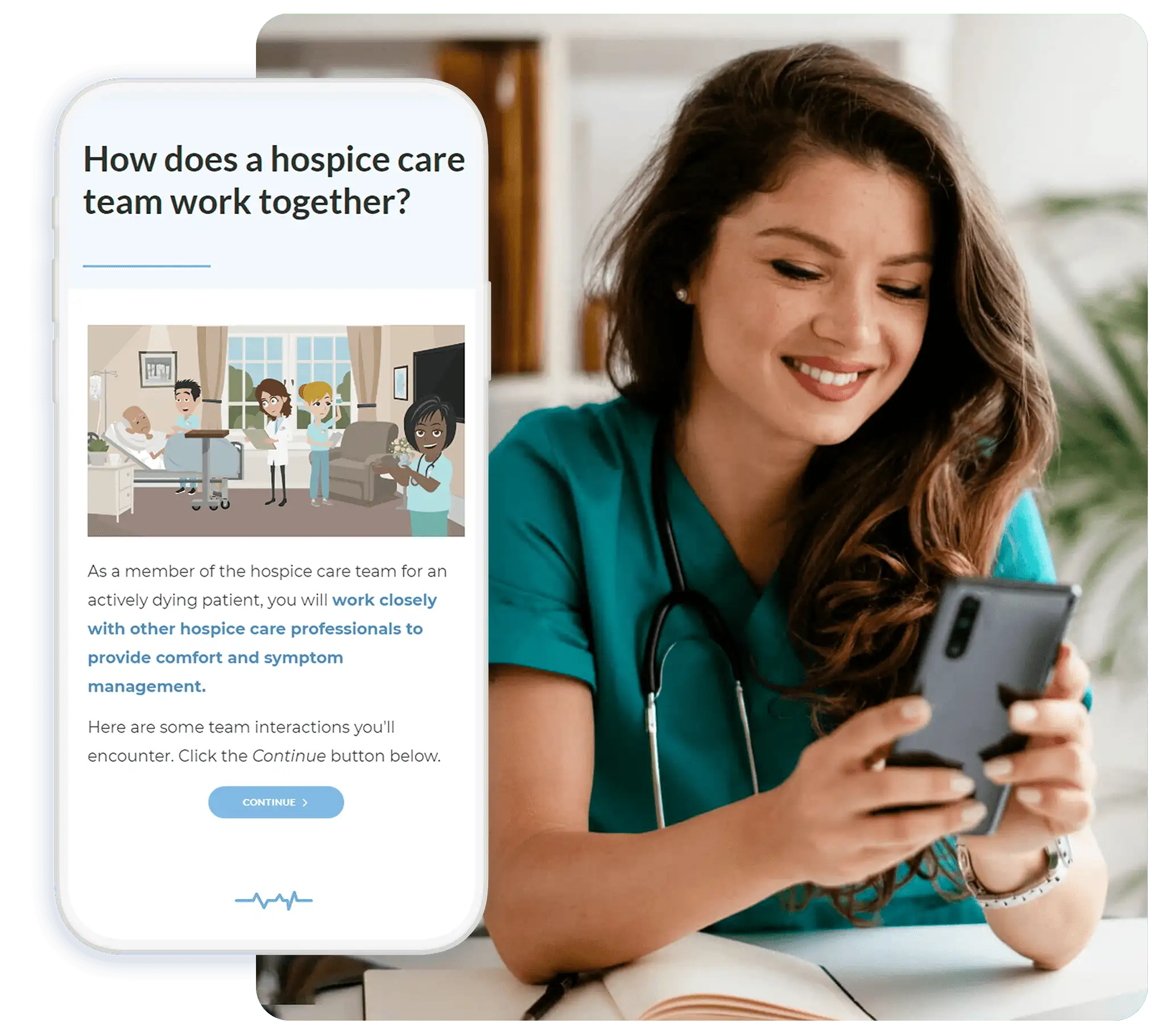How To Deal With A Loss of Appetite
Introduction
When a person is very ill, eating and drinking no longer bring the same pleasure and renewed energy it once did. Foods don’t taste right. A person often begins to have difficulty swallowing. Their ability to digest food and to maintain the proper balance of fluid gradually slows as the body begins to shut down. Loss of appetite is a normal process at the end of life. If this is hard for you as a family member, friend, or caregiver to accept, you are not alone. It might help to keep in mind that the person you care for is dying because of their illness, not because they don’t feel like eating or even drinking much anymore.

CONTINUA LEARNING
Simplify Your Hospice Team’s Training and Skill Building
A complete solution for your agency: more than 125 hospice courses, caregiver in-services, training plans, and more.
You Can
- Respect the changes the body is signaling. Urging someone to eat or drink when they don’t feel up to it won’t make them feel better. Show your care in other ways.
- Offer small amounts of preferred foods or favorite “comfort foods.” Be prepared when only a few bites are wanted. The body does not require the fuel (calories) it once needed. Cool, soft foods like applesauce or pudding or ice cream are often most appealing. Liquid meal replacement drinks may be helpful if tolerated.
- Help the person to a comfortable sitting position when eating; eat your meals with them if possible.
- Ask your nurse if medications are available in liquid or other forms if the person is having difficulty swallowing pills.
- Join your loved one at mealtimes, even if they don’t feel like eating with you. People miss the ritual of sharing meals more than they miss the food. If you usually watched the news together while eating supper, you might want to continue that routine. Join the person where they are.
- Provide frequent mouth care. Don’t forget to help the person brush their teeth or rinse out their mouth to freshen their mouth and taste.
- Moisturize the lips. Use water-based or lanolin-based lip balm or moisturizers rather than petroleum-based products.
- Talk to your care team about any concerns or questions you have about artificial nutrition and hydration (feeding tubes or IV fluids).
Please call your Hospice team anytime for more information or support.
If you found this article informative and useful share it with your friends and colleagues.
